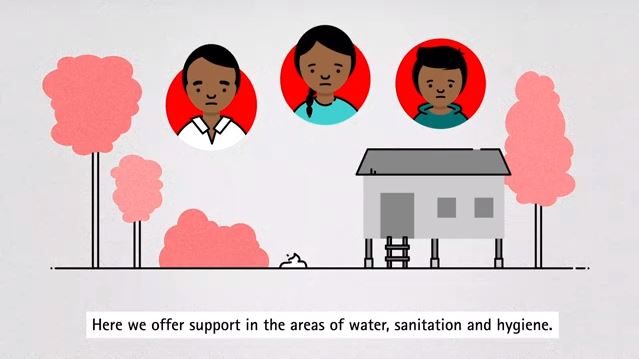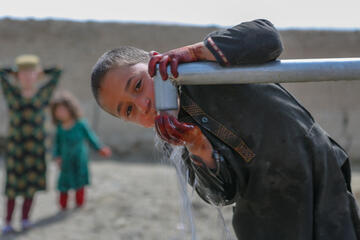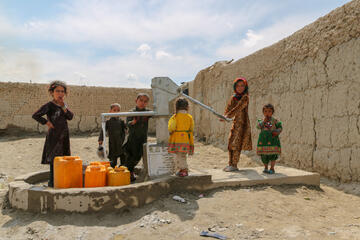Youngest human right celebrates birthday
Berlin / Kampala, 28 July 2020
On 28 July 2010, the right to water and sanitation was officially recognised as a human right by the United Nations General Assembly. But even ten years later, one person in ten still does not have access to clean drinking water.
In many countries around the world, people have very little or no access to clean water. They often have to walk several kilometres to get drinking water. In addition, hygienic conditions are often precarious, as the lack of water often comes together with a poorly developed infrastructure and hardly any sanitary facilities.
However, both water and sanitation are of great importance for our lives and the foundation for the realisation of our human rights. On 28 July 2010, the right to water and sanitation was therefore officially recognised as a human right by the United Nations General Assembly. The resolution calls on states and international organisations to assist developing countries in particular in providing safe, clean, accessible and affordable drinking water and sanitation for all.
Around 100,000 people supported in the WASH sector
For many years access to clean water, sanitation and hygiene (WASH) has been an essential part of many Johanniter projects, whether to improve health conditions or in the aftermath of natural disasters. By laying drinking water pipes, awarding contracts for water filters, and constructing latrines, we contribute to the improvement of water and sanitation services worldwide. Another important part of our work is to train the population in hygiene issues in order to prevent the outbreak of diseases such as Ebola or Corona.
Today, the right to water and sanitation, which is enshrined in international law, has existed for ten years. According to our strategy, we at Johanniter implement this right in our projects worldwide.
"Last year alone, we were able to support around 100,000 people in the WASH sector, for example through education, clean water or a latrine. We will continue to focus on achieving the UN's sustainability goal in our projects," says Dr. Oliver Hoffmann, public health consultant at Johanniter International Assistance.

Our work in the WASH sector
WASH measures provide the foundation for a healthy life. Therefore they are an important part of many of our projects worldwide.

